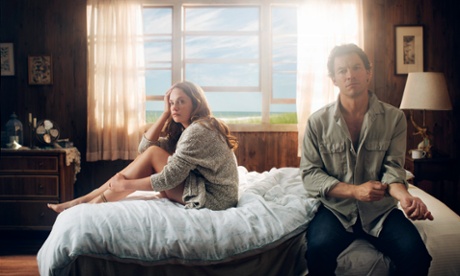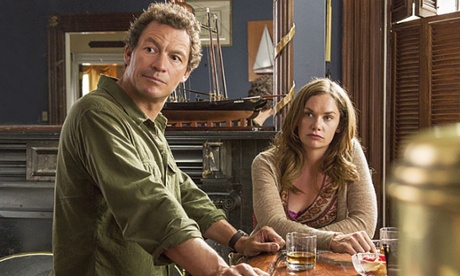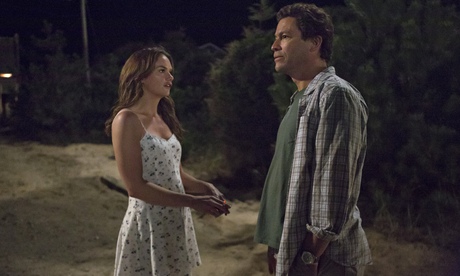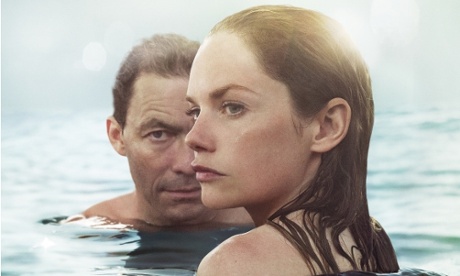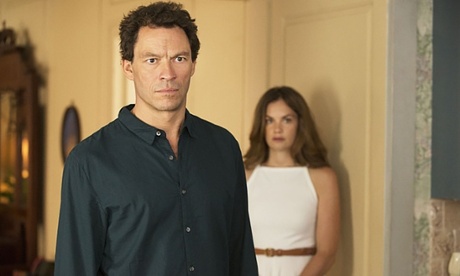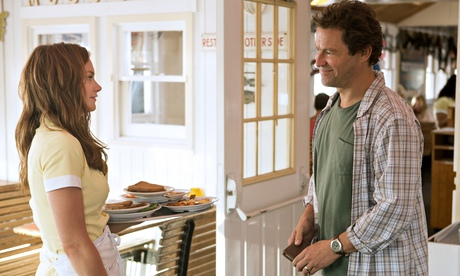At away days and staff meetings in recent years, BBC drama commissioners have been prone to ask: “What stories do we want to tell?”, directing attention towards compelling narratives. An equally interesting question, though, might be: “How do we want to tell this story?”
For example, in a brainstorm structured around the search for stories that demand to be told, The Affair (Wednesdays, 9pm, Sky Atlantic) would struggle: it has an off-the-peg premise – the sort of thing that John Updike and John Cheever were familiarising in prose fiction more than 50 years ago – of marital infidelity among the moneyed east coast classes. But it is the way the story is told that has won Sarah Treem and Hagai Levi’s 10-part series for Showtime two Golden Globes, several foreign exports and a recommission for a second series.
The Affair attempts on television the device of unreliable narration. It has become commonplace in novels – examples include Ford Madox Ford’s The Good Soldier and Agatha Christie’s The Murder of Roger Ackroyd – where the ‘I’ who is our objective commentator is exposed as a player in the tale – a liar, a killer or the opposite gender from the one we have assumed.
Another tactic in novels is to have two characters offering alternate versions of the same event, which is the form adopted for The Affair. As viewers of the four episodes shown in the UK to date have come to understand – initially with fascination, later sometimes with frustration – each chapter happens twice, first from the viewpoint of Dominic West’s Noah, a schoolteacher struggling to write a novel, and then filtered through the memory of Ruth Wilson’s Alison, a waitress whose child has recently died. She serves Noah’s family in a Long Island diner, sparking an attraction that threatens two marriages.
The pleasure (occasionally pain) of the show is that – in a phenomenon observable in areas from family anecdotes to court-room testimony – the accounts don’t match. The discrepancies occur not only in the stuff you might expect – who first came on to whom, how guilty each participant felt – but in more fundamental details: sometimes, Noah’s and Alison’s versions of the same scene contain not just completely opposite dialogue but occur in divergent settings. Events at which we’ve seen Noah present may be replayed after the commercial break without him.
You can see why quality actors such as West and Wilson were seized by the idea: they get to do almost every line and scene two different ways, an exercise generally only possible in rehearsals. The problem, though, is that even unreliable narration has some obligation to be straight with the audience. While the narrator of The Murder of Roger Ackroyd is revealed as a liar, the book depends on the assumption that he tells us the truth in the end. The Good Soldier may be full of ambiguities, but the consumer is given enough information to take a view on them.
The Affair is shot with the solid probity of peak-time social realism. But if at least half – and possibly more – of every episode didn’t really happen, then the viewer becomes a juror, deciding which of two reconcilable events to believe.
That can be enjoyable, but it’s not clear at this stage how the series will reach the climactic equivalent of a judge’s ruling on who was telling the truth. Such a role might be fulfilled by a police detective, to whom the characters are speaking after a so-far unspecified crime but, within the conventions of the series, the cop may not even really exist.
TV is a literal medium and even viewers who routinely distrust the news tend to believe what they are seeing in drama. In crime stories, when a suspect or witness is telling the cop where they were at the time of the murder, purist producers and directors leave the account merely verbal; if the scenes are illustrated, it creates the paradox of a false flashback. However unlikely the action is (Doctor Who, Game of Thrones), we accept that it is really happening and would be annoyed to discover, when the shows eventually end, that the whole thing was a nightmare suffered by a child in Surrey.
Even series that are deceiving us need eventually to establish a fixed reality, even if – as in Ashes to Ashes and Lost – the solution is non-realistic. In John Hopkins’s celebrated 1966 drama Talking to a Stranger – where a family tragedy is seen from four different perspectives over the quartet of episodes – there is a solid sense of what took place, with the doubts and lies coming in the whys. Similarly, in this year’s BBC1 drama Ordinary Lies, writer Danny Brocklehurst intertwined the stories of six characters – seen from a new focus each week – but the basic facts remained solid: if someone is missing or pregnant in jail in one character’s storyline, they remain so in others, regardless of whether two people might interpret or present these incidents contrastingly.
Already, The Affair is showing worrying signs of asking us simultaneously to doubt anything that is shown in the love scenes while accepting as fact the interleaving scenes involving Noah’s and Alison’s families. And why – so far – does the man’s version always come first?
I just hope that we are not going to discover that the disparities are explained by the fact that one or both of the lovers has early-onset Alzheimer’s. The Affair is an intriguing answer to the question: “How do we want to tell this story?”, but needs to prove that it has properly interrogated the problem of “How can viewers tell what is true?”
